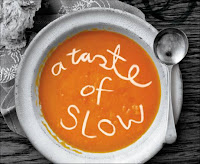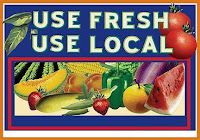Changes? What Changes?
 The ongoing worldwide economic crisis has created many obvious changes in behaviour, mostly focused on the effects of reduced funds. Whether it is the fear that makes a salaried person “tighten” his or her budget or someone who actually has less money coming in (for example, an entrepreneur struggling to make ends meet or, worse yet, someone who has been fired), there is less money floating around. However, given human nature, once the world’s economies recover and businesses reignite, with fuller employment, most of these shifts in behaviour will inevitably revert back in pavlovian style to the habits of the past.
The ongoing worldwide economic crisis has created many obvious changes in behaviour, mostly focused on the effects of reduced funds. Whether it is the fear that makes a salaried person “tighten” his or her budget or someone who actually has less money coming in (for example, an entrepreneur struggling to make ends meet or, worse yet, someone who has been fired), there is less money floating around. However, given human nature, once the world’s economies recover and businesses reignite, with fuller employment, most of these shifts in behaviour will inevitably revert back in pavlovian style to the habits of the past.
The question that interests me most, however, for this post is which of the changes will be permanent. The profound changes in culture and the creation of related new processes are what will cause the change to stick. Many of the changes pre-date the recession, at least in their origin. The recession has also provoked new business models and practices. Among the lingering changes in behaviour, clearly, from a corporate standpoint, managers who have never had to face such difficult times will have plentiful learnings which should augur well for being better prepared in future downturns. A perfect example is how management at internet companies have managed this crisis much better since getting their proverbial fingers burned in bursting of the internet bubble in 2000-2001.I will present below which four major changes I believe will have staying power, at least in the much of the developed world.
Durable Sustainable Development Effects
 As the need to green has invaded mass media, I have three thoughts here about the more lasting cultural shifts: (1) There is clearly a move away from heavy consumption of fossil fuels (SUVs and cars in general), creating new habits such as walking to work or taking public transport which may, in turn, help justify and finance more public transport development. (2) Purchasing “green” for the long term should have, by definition, a long tail. An example is the purchase of long lasting LED lights whose benefits of durability and low energy consumption are slowly gaining traction, even if they present a higher upfront cost. (3) Attention to reducing water consumption has meant walking away from bottled water (at restaurants as well as at home) and perhaps showering a little quicker and, perhaps, less frequently… On average, every minute under the shower represents 2 gallons or 7 1/2 litres. (Find out how much water you use daily with this handy USGS calculator). There’s a continuing business opportunity for the water filter companies, although it is not so good for the shower gel business.
As the need to green has invaded mass media, I have three thoughts here about the more lasting cultural shifts: (1) There is clearly a move away from heavy consumption of fossil fuels (SUVs and cars in general), creating new habits such as walking to work or taking public transport which may, in turn, help justify and finance more public transport development. (2) Purchasing “green” for the long term should have, by definition, a long tail. An example is the purchase of long lasting LED lights whose benefits of durability and low energy consumption are slowly gaining traction, even if they present a higher upfront cost. (3) Attention to reducing water consumption has meant walking away from bottled water (at restaurants as well as at home) and perhaps showering a little quicker and, perhaps, less frequently… On average, every minute under the shower represents 2 gallons or 7 1/2 litres. (Find out how much water you use daily with this handy USGS calculator). There’s a continuing business opportunity for the water filter companies, although it is not so good for the shower gel business.
 Goods that are good for you and the end of consumerism
Goods that are good for you and the end of consumerism
I would argue that, for an ever growing part of the population, there is going to be a true and lasting trend away from hyper consumerism. Ownership is not all it is be cracked up to be. Beyond the worry of reduced finances, the issue of buying and owning goods is one of quality of life: people will come to the realisation that owning too much is actually a burden, a headache, often times actually creating additional embedded costs and hassles; and, it certainly does not lead to greater happiness. Someone who owns more than two homes knows what I am talking about: each home creates multiples of paperwork, presumably having to adjust to different rules and regulations. Just making sure that each house is stocked with the basics, much less complete dinner settings, etc. is quite the ongoing exercise. If you are someone who owns a super expensive car, you know that investing in spare parts and getting little scratch marks fixed is a hassle — especially as you roam away from the local dealership. Finding “protected” parking when you decide to take your jazzy car for a ride in town is an extra constraint. Of course, having too much of anything means that you need to have the space to store it… extra hassle and expenses. One of the more potent trends that plays to avoiding owning yet another holiday house: swapping homes (whether for the holidays or not). Here’s a plug for a friend’s initiative, Geenee, which allows for a swap with the “world’s best.”
 On another level, eating at home as opposed to going out to the restaurant will create a new culture of home-cooking, with a sharper attention to the ingredients (not just their cost). There has apparently been tremendous growth in cooking school enrolments. And, in a similar vein, there is also the notion of SLOW FOOD*, as promoted diligently and valiantly in the US by Alice Waters (check out her restaurant Chez Panisse in Berkeley CA where they serve only in-season fruit and vegetables).
On another level, eating at home as opposed to going out to the restaurant will create a new culture of home-cooking, with a sharper attention to the ingredients (not just their cost). There has apparently been tremendous growth in cooking school enrolments. And, in a similar vein, there is also the notion of SLOW FOOD*, as promoted diligently and valiantly in the US by Alice Waters (check out her restaurant Chez Panisse in Berkeley CA where they serve only in-season fruit and vegetables).
So, the lasting trend here is a move away from amassing goods that crimp my space, burden my mind and waste resources. Instead, people w
ill focus on goods that bring mental freedom, physical health and, hopefully, a smile to the face. As the literature and media coverage latches on to this trend, I see this trend going mainstream even in the rich circles. Recommended reading: The Story of Stuff by Annie Leonard and The Art of Simple Food by Alice Waters.
Buy Local
 There are two driving forces to buy local: “sustainable development” and latent protectionism. If you buy locally produced goods, the concept is that the items didn’t use as many resources travelling from faraway lands, and at the same time that you are supporting your local community. There are two subplots to this trend: the potential revival of the feelgood effect of buying from a local shopkeeper who knows you (even by name!), and greater attention to the content (“made in” labels) and ingredients (“made of”). In economic tough times, this may be a counter-intuitive trend in that mom & pop stores have a hard time competing on price. Nonetheless, I would look for this “Buy Local” trend to prosper on the other side of the recession.
There are two driving forces to buy local: “sustainable development” and latent protectionism. If you buy locally produced goods, the concept is that the items didn’t use as many resources travelling from faraway lands, and at the same time that you are supporting your local community. There are two subplots to this trend: the potential revival of the feelgood effect of buying from a local shopkeeper who knows you (even by name!), and greater attention to the content (“made in” labels) and ingredients (“made of”). In economic tough times, this may be a counter-intuitive trend in that mom & pop stores have a hard time competing on price. Nonetheless, I would look for this “Buy Local” trend to prosper on the other side of the recession.
Sharing, renting and leasing versus buying
There are certainly economic reasons for not being able to buy something and, to the extent the item you are looking to buy is for limited use (e.g. a new dress for a party, a bigger car for a 2 week family holiday…), the option of sharing, renting or leasing becomes more inviting. Sharing & renting may also be collateral plays on the reduced need/desire to buy and own (point 2 above) as the need to preserve and store the item(s) is less onerous. Sharing & renting also pander well to the green conscience. With this burgeoning trend, there are many new offers that have cropped up. I cite a few of the more interesting ones that I have come across:
- Zipcar: a for-profit, membership-based car-sharing company providing automobile rental to its members, billable by the hour or day.
- ArtRentandlease.com: providing “rotating monthly rental packages, Fine Art Leases and direct sales… Individual prices start at just $20 per month, including eco-friendly Green Art.”
- Avelle, or BagBorrowSteal: Rent by the week, the month or for as long as you’d like top fashion brand names for jewelry, handbags, sunglasses, watches, etc. “There’s never a late fee.” You don’t have to be a member, but if you are, the prices are better.
- Babyplays: A membership-based online toy rental site. About time kids’ closets stopped bursting with just-opened, barely used toys, no?
Craigslist, Olx and eBay are the leading internet plays on the circulation of second-hand goods (and services). With Craigslist and Olx, there is the local play as well.Underpinning virtually all these structural changes in behaviour are (1) the internet and (2) sustainable development.
I wrote a while back about how inter-related I felt web 2.0 and sustainable development are (read here), and when you overlay the evident economic benefits, I can only reinforce how this crisis will accelerate the changes and how, coming out on the other end, we will all be that much more on the web, taking advantage of new behaviours and goods & services, indeed creating a kind of new ‘unpop’ eco-culture.
*Slow Food, a non-profit, eco-gastronomic member-supported organization, was borne out of the anti-fast food movement in France in 1989 and is headquartered in Bra, Italy. Slow Food stands against “the disappearance of local food traditions and people’s dwindling interest in the food they eat, where it comes from, how it tastes and how our food choices affect the rest of the world. To do that, Slow Food brings together pleasure and responsibility, and makes them inseparable.” The organisation boasts over 100,000 members in 132 countries.












Hi Minter, Interesting blarticle. I hope those things do come to pass. It will be a better world.
I think that consumerism has less to do with the desire to own than the desire to buy.
Like the Neanderthal with the urge to drag back something to the cave for the family to eat, ("Hey ma, it's dad! He's got mammoth meat!") shoppers come home and proudly display their trophies to family and friends. Shopping is an activity you can have fun doing with your pals.
The art and science of marketing has grown up around this basic human instinct it seems to me, and the two will be very difficult to pry apart any time soon!
About consumerism… I think the accumulation of goods is more the reflection of an urge to compensate a void in spiritual values e.g. religion, beliefs etc. which used to reassure and bring a certain serenity. The bling bling "appearance is all" years might just be over ! It seems we are in need of new values, and money doesn't fit the part anymore. After my Yoga class, strangely enough, I'm in no mood to shop !
About eating out : I have noticed also among my friends the habit of eating at home more often (one reason also being the price-quality ratio in many restaurants in Paris simply not worth it).
Thank you for sharing these thoughts with us 🙂
1) I spot a contradiction : people who don't wash and public transport.
2) I'm wondering what would be the consequences of a change to a protectionist non consumption oriented society. Massive layoffs ? Deflation? Wars?…
This negates everything our world seemed to be running after (let alone what we've been taught).
Your blog on change is thought provoking. And while I do think this crisis has accelerated some changes, I think long-term demographics have more impact. Here are the trends that I see pushing change:
1. Ageing of the world’s population and the demographic consumption changes that go with the life-cycle.
2. Increased consumption of “developing” world, particularly of energy.
3. Increasing changes in the way resources, particularly water, are used in food production.
4. Continuing drop in the cost of communications.
Now to position ourselves properly!
@Jason: Change is the harder path. But as my good friend Sam Villa always told me: Change is for Sure. Growth is the Option.
@Christohpe: Growth may indeed not be very financial/economical!
@Noelle: Happiness without (as much) presence of religion has created a need to figure out how to make life enjoyable without the "relief" of immortality (life after death)… It is a harder journey to make this one life the right and good one, without the 'option' of afterlife. Perhaps, this goes some way to explain the 'urge' to consume.
@PeterP: there are certainly very logical, long-term changes due to the structural nature of demographics. With you there. On the lowering cost of communication… will that make us stay in touch more?
I just read about how, if consumers in France are continuing to consume at shops such as Metro (mass market) during this economic recession, care for the environment is evermore important. Mr. Jérôme Bédier, President of the Fédération du commerce et de la distribution (FCD), is quoted as saying that environmental concerns have become an essential criteria for consumers in France. Watch this space!